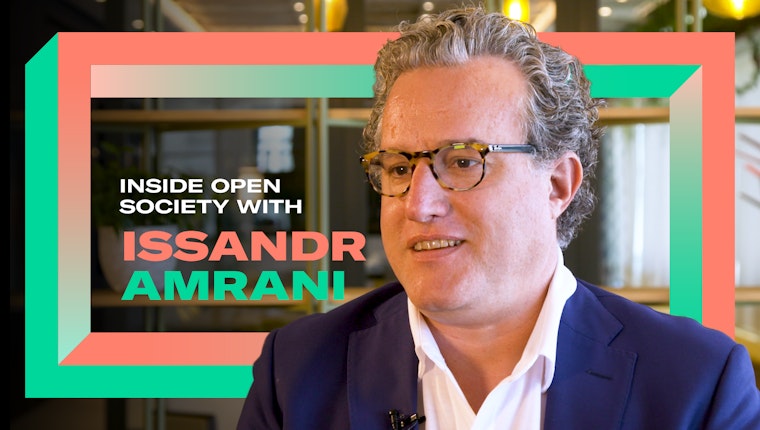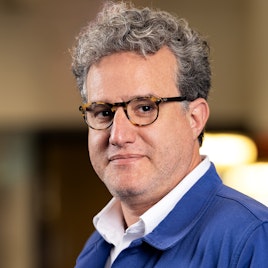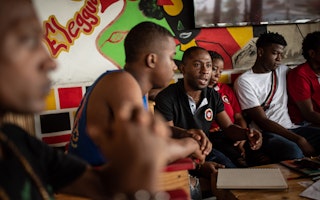Building a Brighter Future for the Middle East and North Africa Region
By Issandr Amrani

Inside Open Society is a look at the leaders at the Open Society Foundations who are advancing our vision to address the world’s most urgent threats to democracy and human rights at a transformative scale.
I am executive director of Open Society–Middle East and North Africa. For most of my career I worked as a journalist, political analyst, and conflict researcher in the Middle East and North Africa (MENA) region. My diverse background—I am part Moroccan, Belgian, and American and have lived in different parts of the MENA region and Europe for most of my life—allows me to identify with the region’s challenges. It also gives me perspective, which is important in identifying the mechanisms and means that can empower its citizens to work towards a more hopeful future.
Those challenges are profound. For years, the world has witnessed harrowing images of bodies pulled out from under the rubble in Syria, Yemen, Gaza, Libya, and Iraq. The MENA region, marked by the highest inequality in the world, is embroiled in turmoil. The ongoing decade-long civil war in Syria has generated the largest global refugee crisis in decades, and an eight-year civil war in Yemen has left more than 24 million people—some 80 percent of the population—in need of urgent humanitarian assistance, including more than 12 million children. The Israeli-Palestinian conflict has raged for seven decades and seems more intractable than ever. International and regional geopolitics are playing havoc in the region with Iran, Saudi Arabia, Turkey, Israel competing for influence as U.S. interest in MENA wanes, and other international actors wade in.
In countries where the 2011 Arab Spring took place, and in Iran, authoritarian regimes and illiberal social forces have reasserted themselves following the waves of mass protests and often short-lived democratic experiments these countries witnessed. In other MENA countries such as Lebanon, endemic corruption reached a dystopic crescendo when, in the summer of 2020, the port of Beirut exploded due to negligence, leading to destruction of huge swathes of the city.
It could be easy to lose hope for a brighter future in a region where the struggles of millions of people have run so deep for so long. But that is also why it is imperative to steadfastly support the region’s citizens who are working towards a new reality predicated on forging more effective and accountable states and real respect for human rights and dignity.
I was on the ground in Tunisia and in Egypt as a witness to the popular uprisings that took place in 2011. Like many people at the time, I was caught up in the moment and incredibly hopeful that this would bring change to societies that were increasingly frustrated by ossified political systems. Despite the strong headwinds that the region, some 470 million-strong, has faced since then, its citizens are still aspiring to the same dream of change and betterment that led them to take to the streets more than a decade ago.
The Open Society Foundations have been working in MENA since 2002, when the organization began supporting efforts to end discrimination and push for accountability in the context of the Israeli-Palestinian conflict. The Foundations’ work has since expanded to support diverse civil society groups in the region that are working to boost democratic governance, transparency, rule of law, civic engagement, human rights, women’s empowerment, independent media, and the arts. I work with a passionate team whose members are representative of the diversity of the region, and strongly committed to seeing it flourish.
A lot of the work that we undertake in the MENA region stems from our long-term vision. We know that we are investing in change that we might not see for a long time, perhaps not even in our lifetimes. We aim to help our partners grow and gradually build systems that can in turn help future generations. Our grantees have had a number of successes in different places, ranging from provision of immense support to refugees in the region, to securing accountability for war crimes in Syria, to training hundreds of reporters on investigative journalism, to strengthening independent arts and culture organizations. They often work against formidable odds. We remain committed to our grantees and partners who are defending open society values in the region and keeping citizens’ hopes for democracy, inclusivity, and plurality alive. Working together, we believe that a brighter future for the MENA region is possible.

Issandr Amrani is managing director of Programs.


